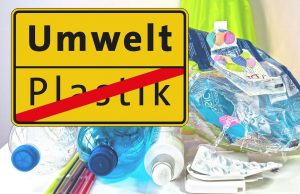In April 2022, the UK government is set to introduce a Plastic Packaging Tax (PPT), which will be applied to any packaging that does not contain at least 30% recycled plastic. With this development, more companies are choosing to move to alternative packaging materials.
While they are typically made from 100% plastic, shrinkwrap materials come with many benefits, and modern films are increasingly sustainable and environmentally friendly. If your goal is to minimize the carbon footprint of your product packaging you should consider shrinkwrap.
The Move to Compostable Shrinkwrap

Unlike regular plastic which breaks down after hundreds of years, compostable shrinkwrap films will break down under natural conditions. One of the issues with regular plastics is that they eventually break down into microplastics and can be harmful to ecosystems.
Compostable shrinkwrap has the same properties and aesthetic qualities as conventional shrinkwrap films. They provide all of the same benefits too, but with far better environmental credentials. Although these films are more expensive, research shows that many consumers are happy to pay more for products that are better for the environment. Comfortable shrinkwrap film is compatible with most existing shrinkwrap machinery so adoption can be relatively straightforward.
The Introduction of Sugarcane Polyolefin Materials

In a similar trend, shrinkwrap film producers are starting to experiment with sugarcane polyolefin. Shrinkwrap can be made to contain up to 51% sugarcane cellulose, so the carbon footprint is greatly reduced compared with the plastic films we are used to. These greener materials are noted as being versatile and durable, providing great aesthetic quality and the same levels of product protection as you would expect from conventional Polyolefin. The inclusion of a renewable resource like sugarcane is great for the environment and it goes some way to offsetting some of the carbon that is created when materials are created and reduces the reliance on fossil fuel-derived plastics.
The Increased Use of Shrinkwrap in the Food Industry

The food industry has adopted shrinkwrap for several reasons. Shrinkwrap improves the product aesthetic, as packaging food in a clear material allows customers to see the product and gauge appearance and quality. At the same time, manufacturers are able to add essential information directly onto the packaging material to convey essential information, such as nutritional information
Shrinkwrap creates a sealed environment around food products, which can greatly extend the shelf-life of many perishable goods. This has many positive implications for key issues surrounding food waste, and if companies choose to use greener shrinkwrap options, then the merit of shrinkwrap in the food industry is clear.
If properly applied, shrinkwrap will help to protect items from external contamination during transit and while on display. It will also show evidence of tampering, which helps to ensure products reach the consumer as intended.
Will the Plastic Packaging Tax Apply to Shrinkwrap?
The tax will be applied to all plastic packaging that uses less than 30% recycled plastic. Despite all of the positive points outlined above, greener shrink wrap materials will still be subject to PPT. There are still a number of reasons to take up these products, but companies can also opt for shrinkwrap film that contains enough recycled material to be exempt. However, there is a fine balance between the cost of materials and the actual cost to the business of incurring PPT. Speaking to a Packaging Specialist like Kempner can help find the right packaging option in light of the upcoming changes.
Is Cardboard a Good Alternative to Shrinkwrap?

Many companies have considered replacing plastic with cardboard in recent times. Cardboard packaging can be great, especially when it is made from recycled and renewable materials. It decomposes quickly and does not have the same polluting qualities as plastic. However, the cardboard production process takes up a lot of energy and will likely increase the carbon footprint of your products.
A great deal of cardboard ends up in landfills because it can only be recycled if it has not been contaminated with food. There are also issues with printing inks, as some may have negative impacts on the environment. Cardboard can also be bulky and will take up a lot of storage space, plus, it is also a lot heavier than shrinkwrap, which can increase transport costs and carbon emissions.
Why Corporate Social Responsibility Are BeingTaken So Seriously
The shrinkwrap industry has been around for a long time now, and corporate social responsibility is producing greener materials. Environmental issues affect us all. Corporations have a responsibility to lower their carbon footprints significantly. As the world moves to greener energy sources, investment in fossil fuel technologies is set to go down, and plastic is one of the items that has proven problematic in the past.
Using thinner shrinkwrap materials has been noted to help make shrinkwrap more sustainable. As we move forward as an industry, there is a trend towards circularity in the supply chain. Therefore more companies should take advantage of greener films, such as those which contain recycled and renewable materials.
Author Profile

- Blogger by Passion | Contributor to many Business Blogs in the United Kingdom | Fascinated to Write Blogs in Business & Startup Niches
Latest entries
 Health & BeautyJune 24, 2025Beyond the Pill Bottle: 4 Pharmaceutical Packaging Innovations Making Medicine Safer and Smarter
Health & BeautyJune 24, 2025Beyond the Pill Bottle: 4 Pharmaceutical Packaging Innovations Making Medicine Safer and Smarter Business AdviceJune 23, 20257 Smart Ways London Exporters Can Navigate Customs Paperwork
Business AdviceJune 23, 20257 Smart Ways London Exporters Can Navigate Customs Paperwork EntertainmentJune 13, 20258 Benefits New Casinos Offer Players Over More Established Ones
EntertainmentJune 13, 20258 Benefits New Casinos Offer Players Over More Established Ones BusinessMay 9, 2025The Data-Driven Future of Online Services in the UK
BusinessMay 9, 2025The Data-Driven Future of Online Services in the UK


